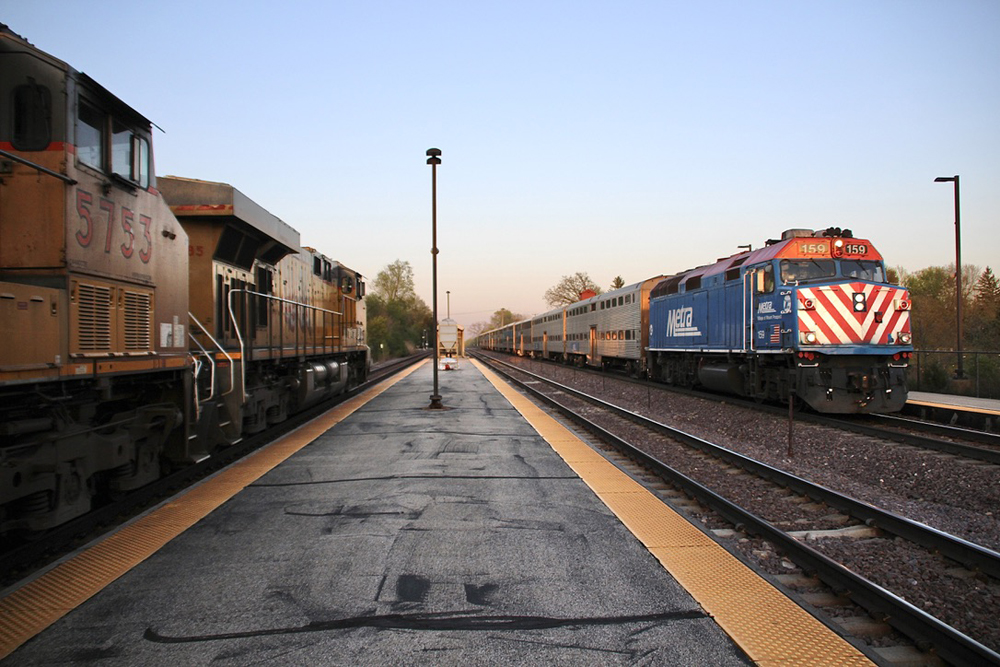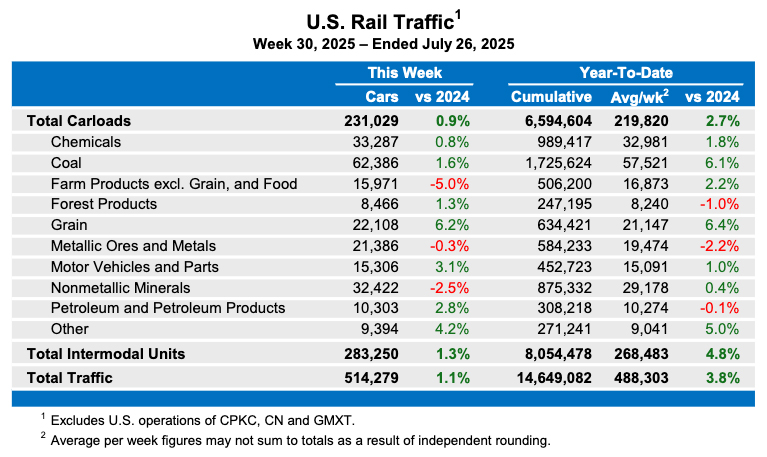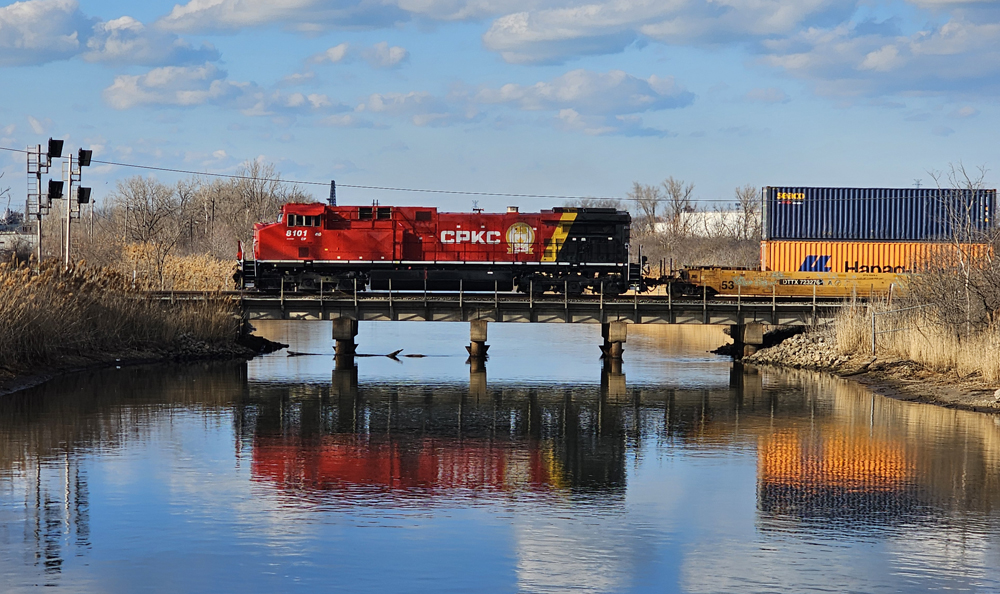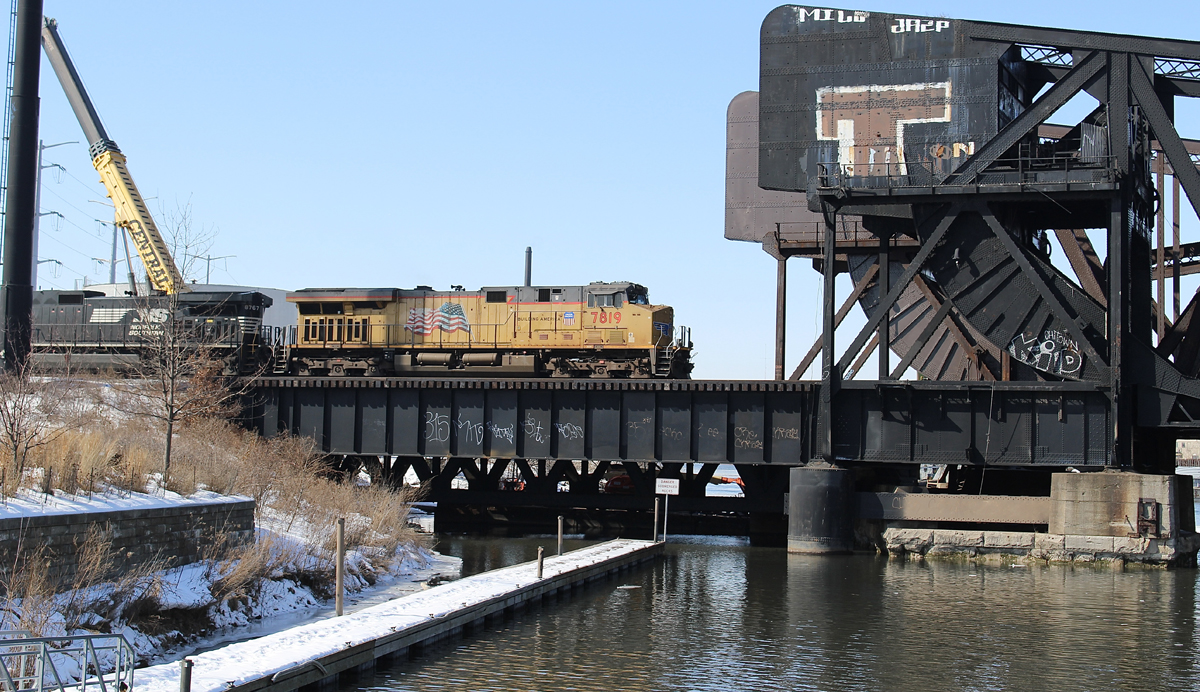
OMAHA — Union Pacific has urged Metra to accept its latest contract offer in the long-running dispute over the transfer of commuter operations on three UP lines, saying the freight railroad “cannot continue subsidizing Metra’s operations.”
Liisa Stark, UP vice president of public affairs, said in a Wednesday, May 21, press release that Metra has paid rates “significantly below commercial market value” for more than a decade. “It is our hope these new rates will resolve the issue without further expensive litigation or regulatory appeals that has no benefit to Metra, Union Pacific, nor Chicago taxpayers.”
UP says the contract “offers Metra flexibility over its financial obligations based on service schedules and the number of trains using Union Pacific’s tracks.” The railroad says the rates are consistent with other passenger agreements it has in Illinois, Colorado, and California, and will take effect July 1 after the current contract expires.
Metra and UP have been addressing the terms of Union Pacific’s exit from providing commuter service for six years, a period that has seen a number of lawsuits and requests for the Surface Transportation Board to intervene. UP’s latest statement comes less than a week after Metra assumed operational and maintenance responsibility for service on the UP North, Northwest, and West lines on May 16, a move that has seen more than 800 employees move from UP to Metra [see “Metra assumes operation …,” Trains News Wire, May 19, 2025].
The statement also comes roughly midway between Metra’s presentation of opening arguments in the current STB case seeking terminal trackage rights on UP in the Chicago area — filed on May 5 — and UP’s response, which is due June 3. [See “Metra asks STB to require …,” News Wire, March 7, 2025, and “STB sets schedule …,” News Wire, March 20, 2025]. The current schedule calls for the matter to be in the hands of the board by the end of June.
“We are currently reviewing UP’s proposal,” Metra said in a statement this afternoon. “We are committed to making this a seamless transition for our riders and being good stewards of the funding we receive from our riders and taxpayers.”
— Updated at 4:18 p.m. CT with Metra statement.














Seize the lines with eminent domain. The class 1s employ lawfare and unreasonable operational interference. They ALL deserve a serious smack down.
I’m pretty sure that Metra will not maintain the Union Pacific tracks. Rather, Metra will maintain the locomotives and passenger cars.
I wonder why Union Pacific doesn’t sell Metra much of the Metra-district trackage. UP doesn’t run as many freights as it did during the coal boom. It would never have built so many miles of triple-track just for freight service. Heck, it might not even have built double track!
Gerald, the voters only pay a small portion of the cost, so their “support” can only be measured by votes if they are willing to vote to pay for the entire costs of those services. UP still has to pay for track maintenance because they own the tracks. The State should buy the tracks their by relieving UP of the unfair property tax burdens to provide a service far superior to the public than any the government could. Then the argument for how much to pay would be determined by usage agreements for both passenger and freight service.
So it is finally revealed what the years long delay in the migration of UP/Metra Ops is all about…what is a “market rate”.
Based on the “we subsidize you” remark, I would guess that UP wants a lot more for trackage use than Metra is willing to pay.
However, I might remind the UP who is paying to upgrade the many (now decrepit) bridges built by CNW in the 1920’s as part of the “elevate Chicago” mandate.
You got it, John Q. Public. So who zoomin who on subsidies?
METRA has paid a whole lot to rebuild UPRR’s bridges. It’s like this, John: I give you an expensive present for your birthday. You sell it back to me.
METRA is like Amtrak. In dealing with the freight railroads, the passenger carriers can only play the cards that they hold in their hands.
Wake up this morning to two articles, one each about my two favorite commuter rail systems.
(1) METRA. The public agency has taken over operations of UPRR commuter lines but they’re still arguing over the contract terms.
(2) MBTA. Two months after the start of the long-planned, and extremely expensive, South Coast trains, MBTA and Keolis still can’t get it running properly.
And yesterday, a third commuter operation, one I’ve never ridden and know little about:
(3) Pennsylvania and Delaware trying to figure out how to pay for SEPTA at a time of rising costs and fallen ridership (which seems to have hit bottom).
Is it any wonder that the large portions of the voters have had it up to here with public transportation.
The era of the federal government continuously bailing out local public transportation is coming to its end. The states and locals will need to raise taxes and fund transportation with actual dollars, because the federals are getting tired of printing federal money for local needs.
First off, your statement about the Feds ending support for public transportation only applies to the current administration. Also, whether they or you want to admit it or not, without public transportation supported by the Feds this country would grind to a halt. Furthermore, the amount in dollars is insignificant compared to the overall budget, which is dwarfed by defense spending(itself wasting at least $125 BILLION a year, and that was 10 years ago).
Not sure where you get your statement that large portions of voters have had it up to here with public transportation. Perhaps in those rural areas that do not have adequate public transportation, but in most cities that do, those voters tend to support taxes to pay for said service, so you’re only half right.
As for the UP/METRA issue, since Metra has now taken over operations and MAINTENANCE, I feel that UP has no grounds for any need to get paid “market rate” since they no longer have to pay for maintaining the trackage themselves. What they should do is just sell the routes to Metra and then pay them for usage since that is essentially what they’re doing now with not having to pay for maintenance. It’s time someone reigns in Wall Street, that is this countries biggest problem right now…get those clowns in line and everything else falls into place.
Given the current reduction in use of local public transportation, I doubt that lack of Federal Funds would result in its destruction.
The main entities pushing for the Feds to be so involved in local transit are the unions who naturally don’t want to see their membership decline, management who don’t want to lose their jobs, and the local politicians who worry about being re-elected whenever they have to raise taxes and ticket prices to keep public transportation. To them, any reduction of local Public Transportation is “terrible”, even if the current circumstances seem to call for it.
Comparing public transportation to the Defense Budget is a deflection as it is the largest item in the Federal Budget after Social Security & the mandated Health Care [Medicare and Medicaid], with the interest on the national debt now approaching Defense.
There has been a lot of waste in Defense (along with all of the other Fed spending) over the years. But the current administration seems to be making an effort to try and at least eliminate some of it which is a step in the right direction.
The current proposed Federal budget for transportation has a major increase for restructuring
the air traffic control system to bring it up to modern standards. That is where the current emphasis is and definitely should be, not on providing funds to local transit to maintain the current level of service that is no longer used as much as it had been.